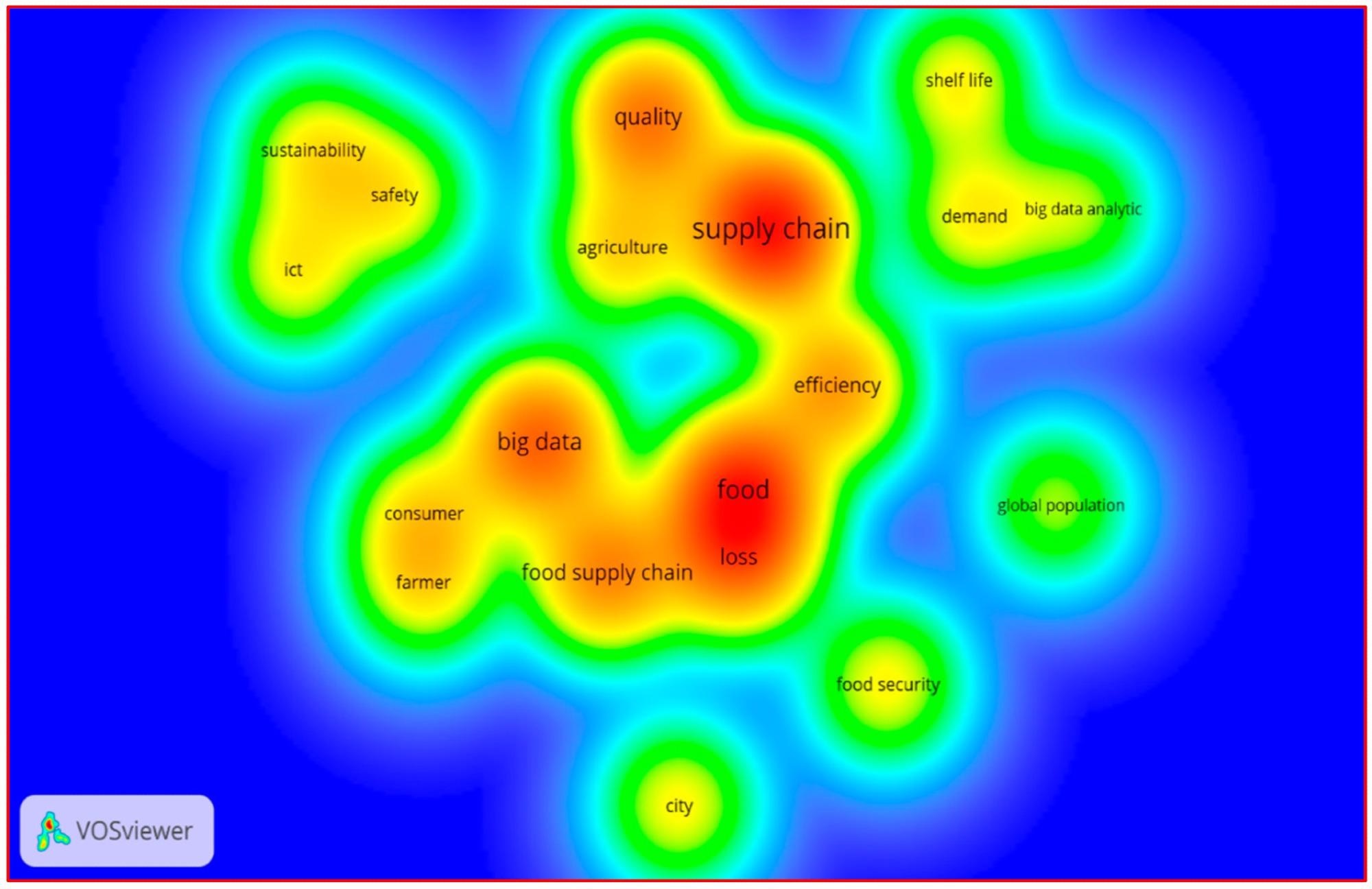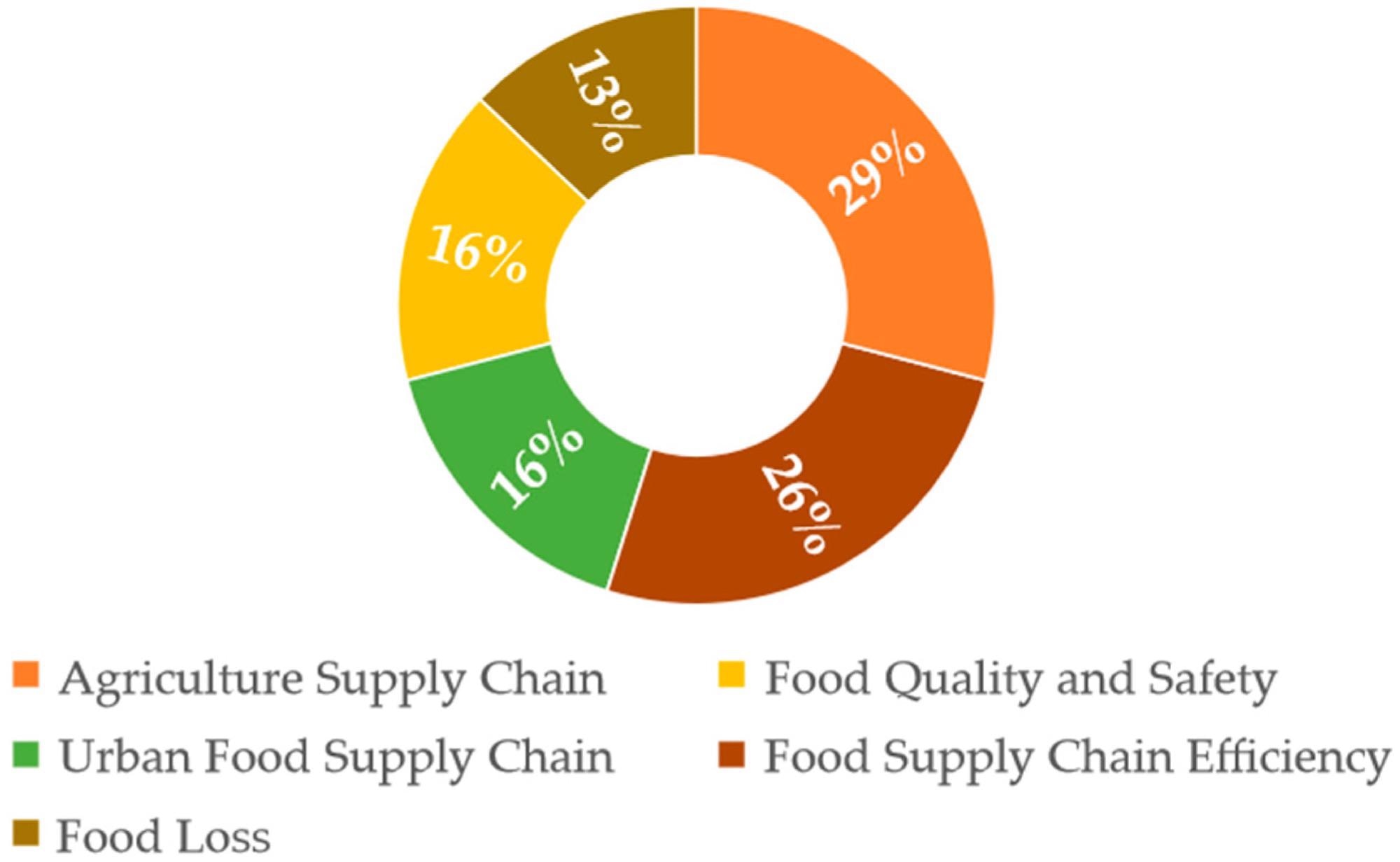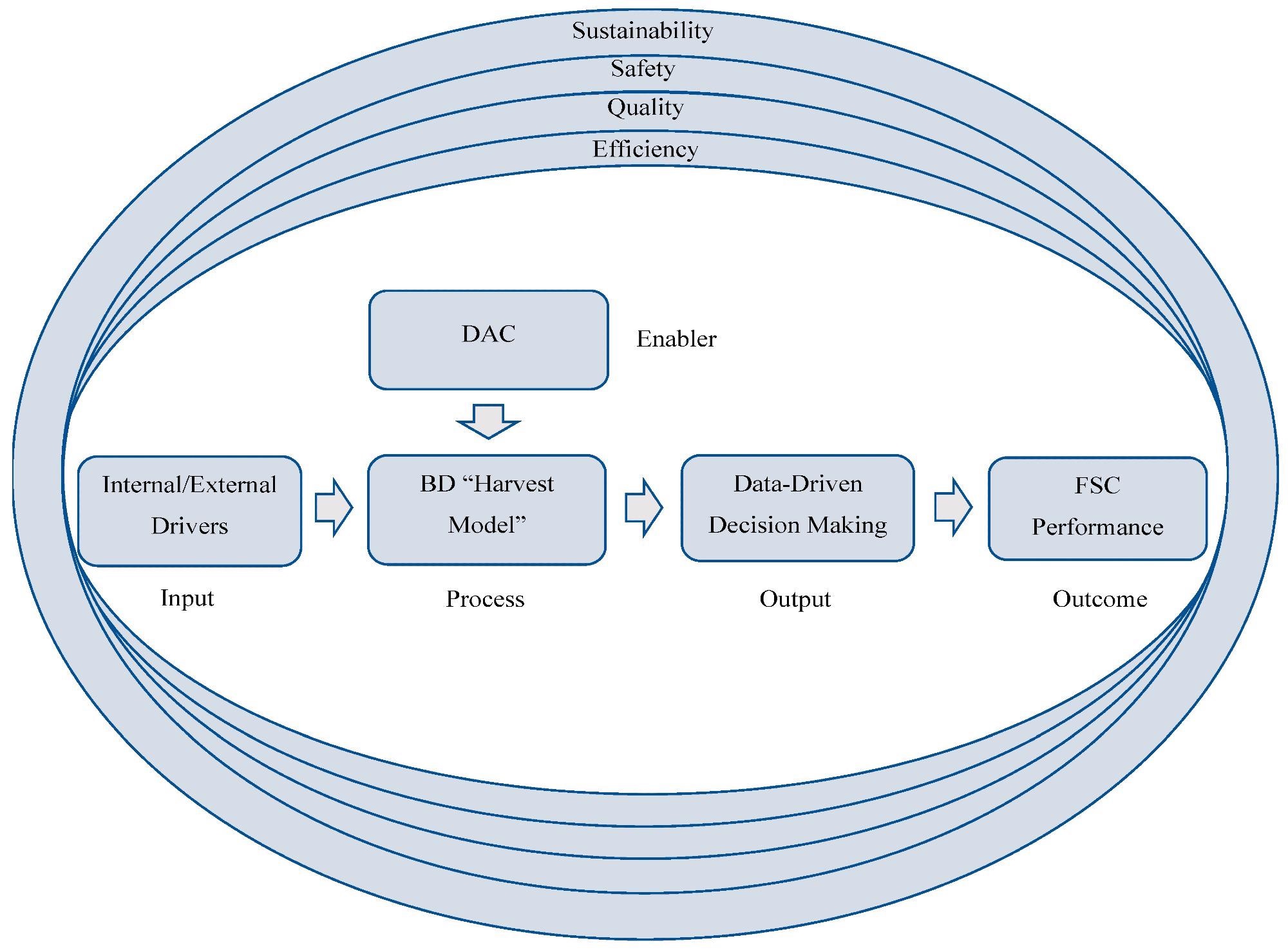The recent advent of sophisticated technology has led to a novel focus on the implementation of huge amounts of created data as a critical and economical instrument for tackling current food supply chain management (FSCM) concerns. Data management has become a vital asset in today's food supply chains (FSCs), with food and beverage (F&B) firms focusing increasingly on acquiring, processing, and analyzing useful information derived from numerous sources throughout their unique food systems.

Heatmap of keywords frequency. Conceptual framework of data-driven FSCM. Image Credit: Margaritis I. et al., Sustainability
The Concept of Big Data in Food Supply Chains
Within data management, the idea of big data (BD) has recently arisen, referring to massive volumes of data assets that are extremely dispersed and heterogeneous, as reflected by the characteristics of mobility, diversity, and quantity. Surprisingly, the additional yearly value that may be realized by the use of BD in FSCs is projected to be between USD 120 and USD 150 billion.
What is Data Analytics Capability?
Inevitably, these data assets must be properly managed inside the FSC model for F&B firms to fully capitalize on data-driven discoveries. This procedure involves the development and execution of data analytics capability (DAC) within food systems through commodity management and efficient collaborative effort among various organizational operations, to facilitate data and information communication and the implementation of big data analytics (BDA).

Study themes in the current literature. Conceptual framework of data-driven FSCM. Image Credit: Margaritis I. et al., Sustainability
The Necessity of Big Data Analysis in Food Supply Chains
BDA might play an important role in today's FSCs by integrating massive data volumes derived from both actual market data and statistical data, facilitating the introduction of potential prospects and the enhancement of food safety throughout the various supply chain activities.
As a result, leveraging BD's capabilities is becoming increasingly important in resolving the continually expanding complexity of these systems, offering fertile ground for the research and development of these modern techniques within the FSCM environment.
Big Data Applications in Agricultural Supply Chain
The introduction of advanced Internet of Things (IoT) technologies has led to the deployment of more effective and sustainable agricultural procedures, progressively changing agricultural methods into precision agriculture (PA). As the primary theme of this theory is centered on the gathering and proper management of information in the context of decision-making, PA is primarily the core component for the implementation of intelligent agricultural production (i.e., data-driven agricultural production activities) and, naturally, the use of BDA in agriculture.
The implementation of BDA encourages possibilities in the agriculture supply chain, not only in terms of process and results but also in benchmarking, traceability of agricultural goods throughout the entire supply chain, and ultimately forecasting for agriculture production and distribution.

Conceptual framework of data-driven FSCM. Image Credit: Margaritis I. et al., Sustainability
Tracking and Decision Making by Using Big Data
In sustainable agriculture, data might be captured, supplemented, upgraded, or combined as resources and data travel through the supply chain network using wireless sensor network (WSN) infrastructure. The latter is founded on linked sensors that gather environmental data and communicate digital information via a radio frequency (RF) transmission unit to the IoT network for retention, surveillance, and monitoring of agricultural goods.
The radio frequency identification (RFID) software, which could also be regarded as a wireless node software because it conceptualizes the very basic example of an interrelated "thing," is arguably the most widespread innovation that fosters the market capitalization on data gathering within tracking and monitoring systems.
Through the combination of BDA, semi-active RFID, and WSN capabilities, the use of BD is projected to revolutionize the way agricultural supply chains work, potentially triggering in-depth business strategy reengineering. The most valuable contribution of BDA in agricultural supply chains is possibly the consistency aspect, which improves management decision-making.
Conceptual Model for Food Supply Chains
The suggested framework, which depicts a novel paradigm of an interconnected FSCM from a BD standpoint, is based on four FSC achievement macro-areas: effectiveness, quality, security, and longevity. Focused on four (4) pillars, an IPO concept of a data-driven FSC was created by adding five (5) separate features to improve comprehensive FSC effectiveness. The first aspect relates to the variables that stimulate the adoption of BD applications, which are the drivers of FSC effectiveness.
The COVID-19 pandemic has surely ushered in a new age on a worldwide scale, severely impeding FSC operations through the shutdown of food production/distribution facilities, budgetary constraints, and the rise of logistics-related challenges. The significance of BD technologies in the development of quicker, more robust, and reactive FSC models must be further studied and analyzed.
Further Reading
Margaritis I. et. al. 2022. Big Data Applications in Food Supply Chain Management: A Conceptual Framework. Sustainability. 14(7). 4035. Available at: https://www.mdpi.com/2071-1050/14/7/4035
Disclaimer: The views expressed here are those of the author expressed in their private capacity and do not necessarily represent the views of AZoM.com Limited T/A AZoNetwork the owner and operator of this website. This disclaimer forms part of the Terms and conditions of use of this website.